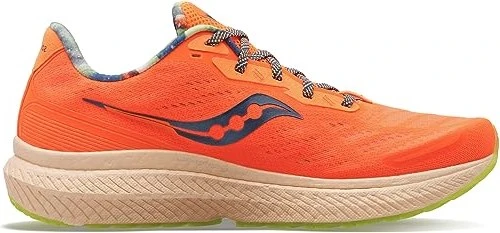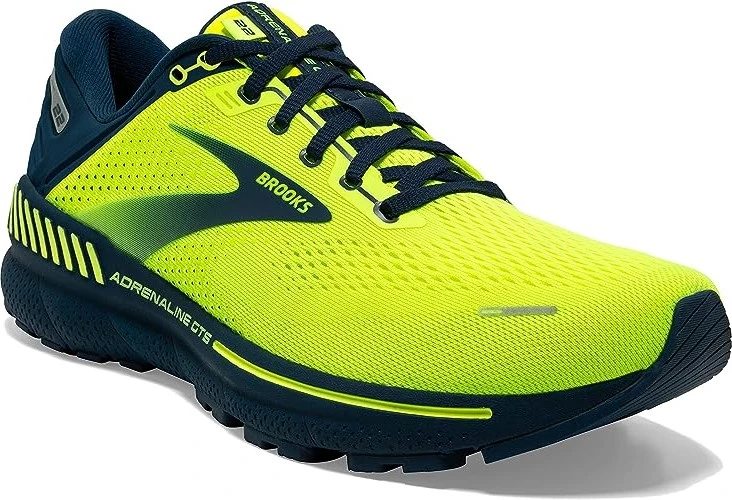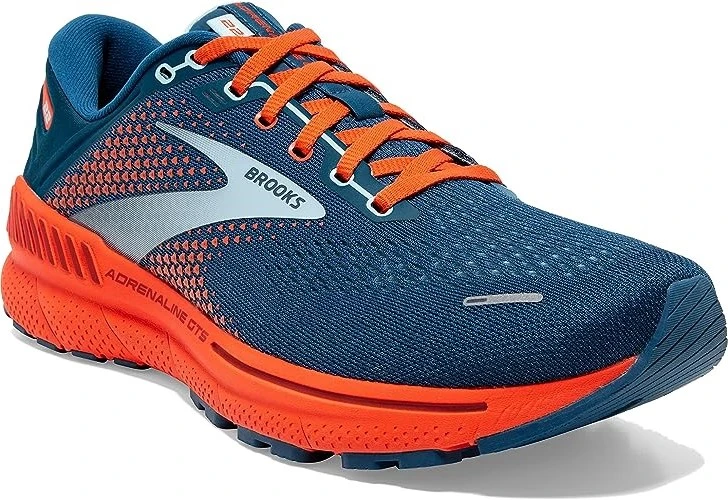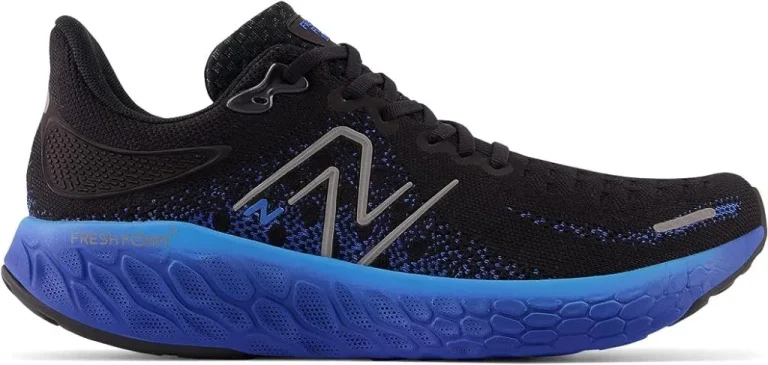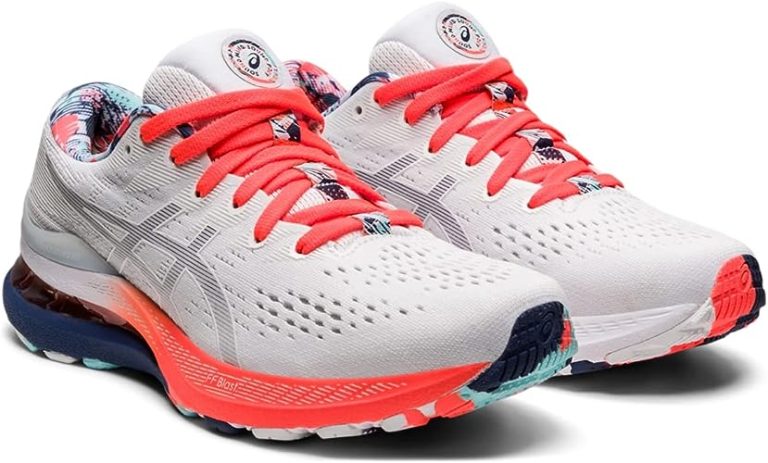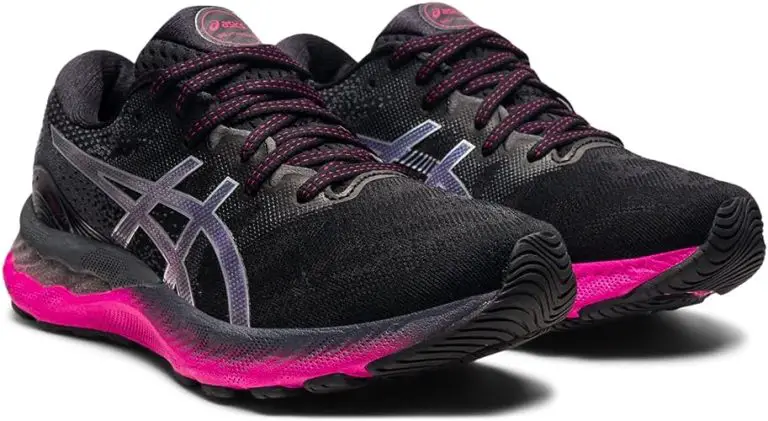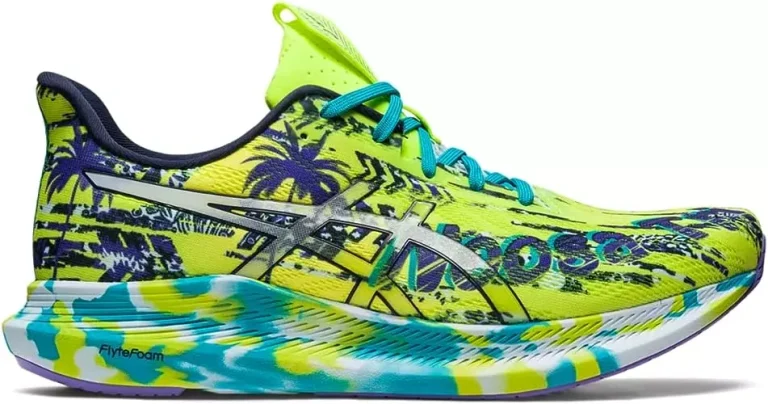Best Running Shoes For Achilles Tendonitis
Achilles tendonitis is a condition that occurs when the Achilles tendon, a strong band of tissue connecting your calf muscles to your heel bone, becomes inflamed. This can result from overuse, improper footwear, or sudden changes in activity levels. In this blog post, we will find the best running shoes for Achilles tendonitis.
“As an Amazon Associate, I earn from qualifying purchases. This means that if you click on an Amazon link and make a purchase, I may receive a small commission.”
What is Achilles tendonitis? Findings In Detail
Achilles tendonitis is the inflammation of the Achilles tendon, which is located at the back of the lower leg, just above the heel. This tendon plays a vital role in facilitating movement, particularly in activities such as walking, running, and jumping.
When the Achilles tendon becomes inflamed, it can result in discomfort, pain, and limited mobility, making everyday activities challenging.
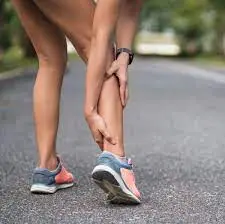
The inflammation typically occurs near the point where the tendon attaches to the heel bone. This can lead to a range of symptoms, including pain and stiffness in the affected area.
If left untreated, Achilles tendonitis can worsen over time, potentially leading to more severe issues such as tendon tears or chronic pain.
Causes of Achilles Tendonitis
Several factors contribute to the development of Achilles tendonitis. These causes often involve overuse or repetitive stress on the tendon, which can lead to microtears in the tissue. Some common causes include:
Intense Physical Activity: Engaging in activities that involve repetitive movements of the ankle, such as running or jumping, can strain the Achilles tendon over time.
Sudden Increase in Activity: A sudden increase in the intensity or duration of physical activities, especially without proper conditioning, can put excess stress on the tendon.
Improper Footwear: Wearing shoes that do not provide adequate support or cushioning can lead to improper foot mechanics, contributing to Achilles tendonitis.
Poor Biomechanics: Abnormal walking or running patterns can place undue stress on the Achilles tendon, leading to inflammation and discomfort.
Tight Calf Muscles: Tight calf muscles can increase tension on the Achilles tendon, making it more susceptible to injury.
Age and Degeneration: As we age, the Achilles tendon may naturally degenerate and become less flexible, increasing the risk of inflammation.
Symptoms of Achilles Tendonitis
It’s important to note that early detection and appropriate treatment play a significant role in managing Achilles tendonitis effectively.
Seeking medical attention when symptoms arise can help prevent the condition from progressing and minimize its impact on your daily activities.
Recognizing the symptoms of Achilles tendonitis is crucial for timely intervention and effective management. Common symptoms include:
- Pain and Stiffness: Pain and stiffness along the back of the heel, especially in the morning or after periods of rest, are common indicators of Achilles tendonitis.
- Swelling and Tenderness: The affected area may appear swollen and feel tender to the touch. The skin over the tendon might also be warm to the touch.
- Limited Range of Motion: Difficulty in moving the ankle and decreased flexibility can indicate inflammation of the Achilles tendon.
- Mild to Severe Discomfort: The pain associated with Achilles tendonitis can range from a mild ache to sharp, severe pain during physical activities.
- Creaking Sensation: Some individuals might experience a creaking or crackling sensation (crepitus) when moving the affected ankle.
- Gradual Onset: Achilles tendonitis symptoms often develop gradually and worsen with continued stress on the tendon.
Best Running Shoes For Achilles Tendonitis: Get Support And Cushioning
Here, I recommend some of the best running shoes for Achilles Tendonitis. You can buy any one of them because this selection is based on my deep research and 30 years of experience in the sports shoe industry.
1) Brooks Ghost 14 Neutral Running Shoe
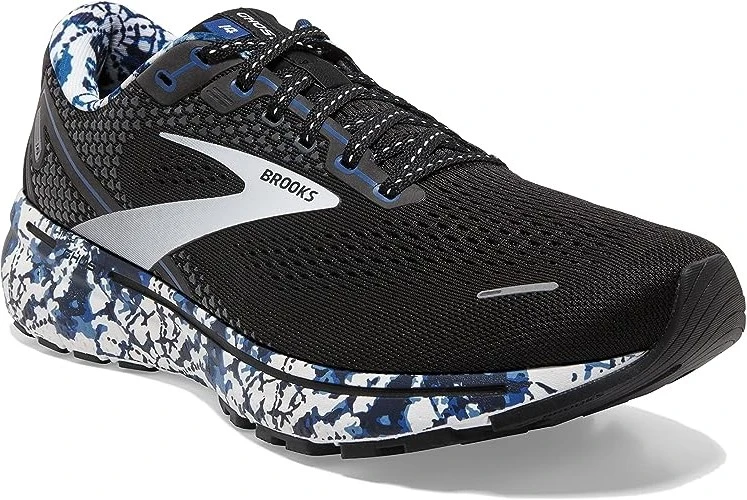
The Brooks Ghost 14 Neutral Running Shoe is a top choice for both men and women seeking the best running shoes for Achilles tendonitis.
With its exceptional cushioning and support, this shoe is designed to alleviate stress on the Achilles tendon, allowing for a comfortable and pain-free running experience.
The Ghost 14 boasts a neutral design, making it suitable for all types of runners. Its lightweight construction and responsive midsole provide a smooth and effortless stride.
Trust me, this shoe is a game-changer for those battling Achilles tendonitis on their running journey. Ghost 14 is the best running shoes for sore achilles.
2) Brooks Glycerin 20 Neutral Running Shoe
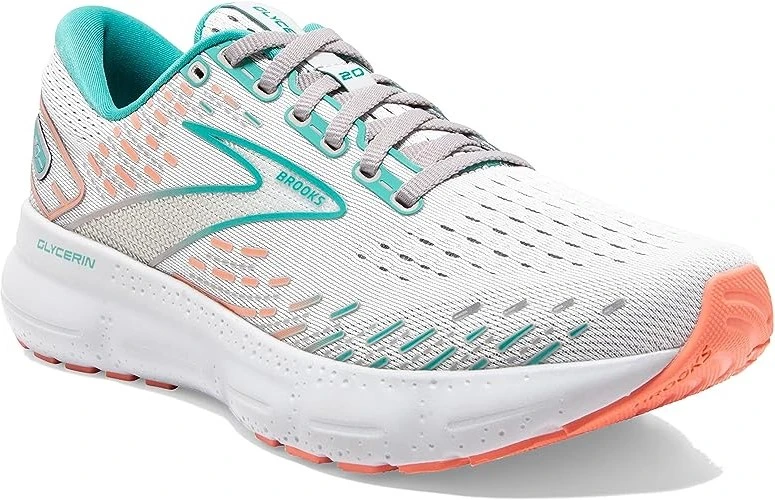
The Brooks Glycerin 20 Neutral Running Shoe is a true gem in the world of running footwear, suitable for both men and women. This shoe is a top choice for those dealing with Achilles tendonitis, providing the necessary support and cushioning to alleviate discomfort.
With its neutral design, it caters to a wide range of foot types, ensuring a comfortable fit for all. The Glycerin 20 boasts a plush and responsive midsole, offering excellent shock absorption and energy return.
Its durable outsole provides reliable traction, allowing you to confidently conquer any terrain. Lace up and experience the perfect blend of style, comfort, and performance. Glycerin 20 is a popular running shoes for tendonitis.
3) Brooks Adrenaline GTS 22 Supportive Running Shoe
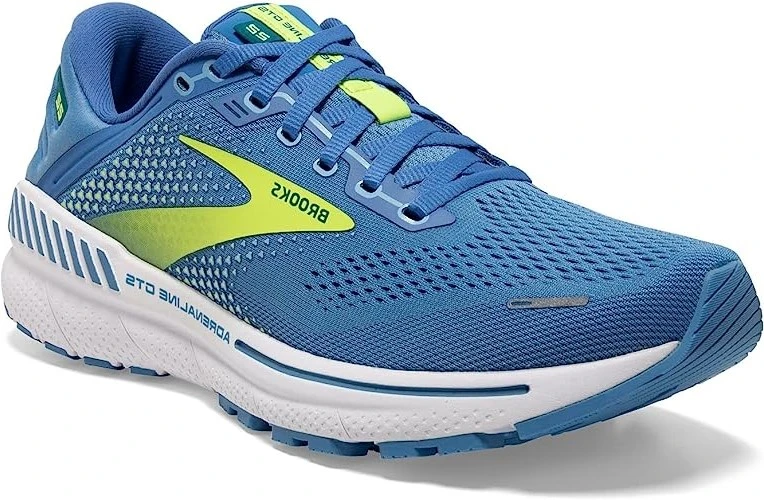
The Brooks Adrenaline GTS 22 Supportive Running Shoe. It’s a fantastic choice for both men and women seeking the best running shoes for Achilles pain. With its exceptional support and cushioning, this shoe provides the necessary stability and comfort to alleviate the strain on your Achilles tendon.
The GTS 22 features Brooks’ renowned GuideRails technology, which helps keep your feet in proper alignment, reducing the risk of injury.
It’s responsive cushioning and durable outsole ensures a smooth and enjoyable running experience. The Brooks Adrenaline GTS 22 is the best running shoe Achilles tendonitis.
Whether you’re hitting the pavement or the trails, these shoes will have you gliding with grace and style economy. This can be helpful for runners who are recovering from Achilles tendonitis, as it can allow them to run without putting too much stress on the tendon.
4) ASICS Men’s Gel-Kayano 28 Running Shoes
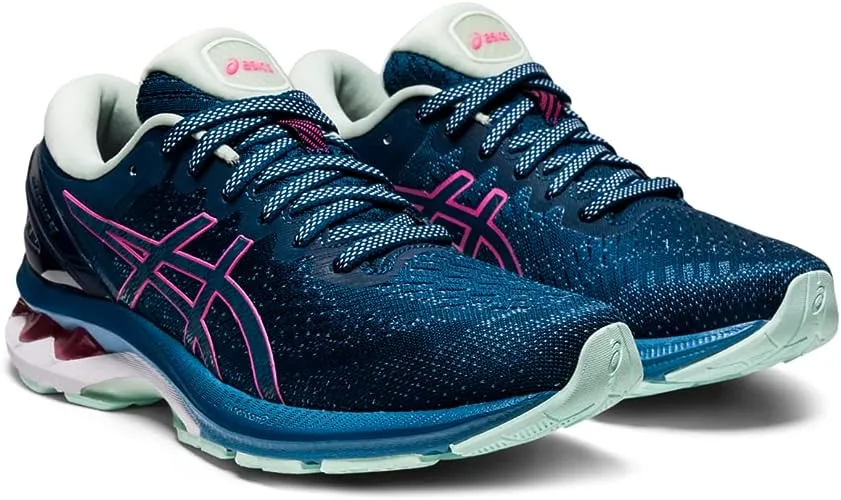
The ASICS Gel-Kayano series, a true gem in the world of running shoes. The Gel-Kayano 27 and 28 models are exceptional choices for both men and women seeking the best running shoes for Achilles tendonitis.
These shoes are meticulously designed to provide optimal support and cushioning, specifically targeting the Achilles tendon area. With their innovative Gel technology, they offer superior shock absorption, reducing strain on the tendon.
The Gel-Kayano series also boasts a comfortable and snug fit, ensuring a smooth and enjoyable running experience. Lace up a pair of these beauties, and you’ll be ready to conquer the goals with style and grace. Gel-Kayano 28 running shoes good for achilles tendonitis.
5) Saucony Men’s Triumph 19 Running Shoe
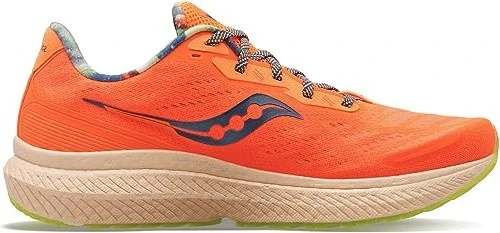
The Saucony Triumph 19 running shoe is a true gem for both men and women seeking the best running shoes for Achilles pain.
With its innovative design and cushioning technology, this shoe provides exceptional support and comfort, specifically targeting the Achilles tendon area. Its plush yet responsive midsole ensures a smooth and enjoyable ride.
While the breathable upper keeps your feet cool and dry. Crafted with precision and attention to detail, the Saucony Triumph 19 is a reliable companion on your running journey, helping you conquer Achilles tendonitis with style and grace. Triumph 19 is the best women’s running shoes for achilles tendonitis.
The Telltale Signs
Achilles tendonitis announces itself through pain and stiffness in the back of your heel, especially in the morning or after physical activity. Ignoring these signals could exacerbate the condition, so it’s crucial to address it promptly.
The Science of Choosing The Best Running Shoes for Achilles Tendonitis
Choosing the right running shoes for Achilles tendonitis can make a world of difference in your running experience. Here are some key factors to consider:
Cushioning and Support
Running shoes designed for Achilles tendonitis offer extra cushioning in the heel area, reducing impact and strain on the tendon. Look for shoes with responsive foam or gel cushioning.
Arch Support and Stability
Proper arch support is essential to distribute pressure evenly and prevent overpronation, which can aggravate Achilles tendonitis. Look for shoes with built-in arch support or consider using orthotic inserts.
Heel Drop and Impact Reduction
A moderate heel drop in your shoes helps alleviate tension in the Achilles tendon. Look for a heel drop of around 8–12 mm for optimal support and impact reduction.
Flexibility for Natural Movement
Flexible shoes allow your foot to move naturally during your stride. This feature prevents excessive strain on the Achilles tendon and minimizes discomfort.
Shock Absorption
Shoes with effective shock-absorbing technology provide a cushioned landing, reducing the stress on your Achilles tendon with every step.
How to Choose the Right Shoes for Your Achilles Tendonitis Pain?
Importance of Trying On Shoes
When choosing running shoes for Achilles tendonitis, it’s crucial to try them on and test them out. Comfort and fit should be your top priorities. You can also choose online from your tested brands.
Professional Shoe Fittings
Consider getting a professional shoe fitting to ensure you find the right shoes for your foot type and running style. Experts can recommend the best options to support your Achilles tendon.
3 Simple Steps to Foot Care From Achilles Tendonitis
Stretching and Warm-Up
Regular calf stretches and a proper warm-up routine can help prevent strain on the Achilles tendon. Incorporate gentle stretches into your daily routine.
Proper Running Technique
Maintain proper running mechanics to reduce stress on your Achilles tendon. Focus on your stride, foot strike, and overall posture.
Rest and Recovery
Allow your body time to rest and recover between runs. This is especially important if you’re dealing with Achilles tendonitis. Listen to your body’s signals.
Conclusion
Finding the best running shoes for Achilles tendonitis is a vital step in managing this condition and ensuring a comfortable running experience. Remember to prioritize cushioning, support, and stability when selecting your shoes.
Additionally, consult with a healthcare professional for personalized advice and consider incorporating exercises and other treatments into your routine. By taking care of your Achilles tendon, you can continue to enjoy the beautiful game of running with style and grace.
I hope this blog post has provided you with valuable insights and guidance. Remember, it’s not just about the shoes; it’s about your love for the game and taking care of your body. I wish you many enjoyable and injury-free runs ahead.

